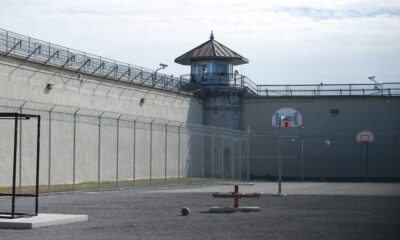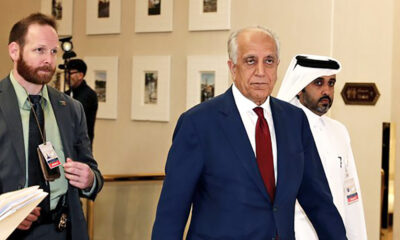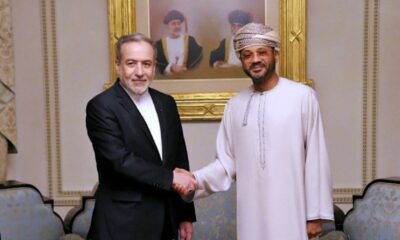Latest News
Afghanistan one of 11 “highly vulnerable” countries regarding climate change
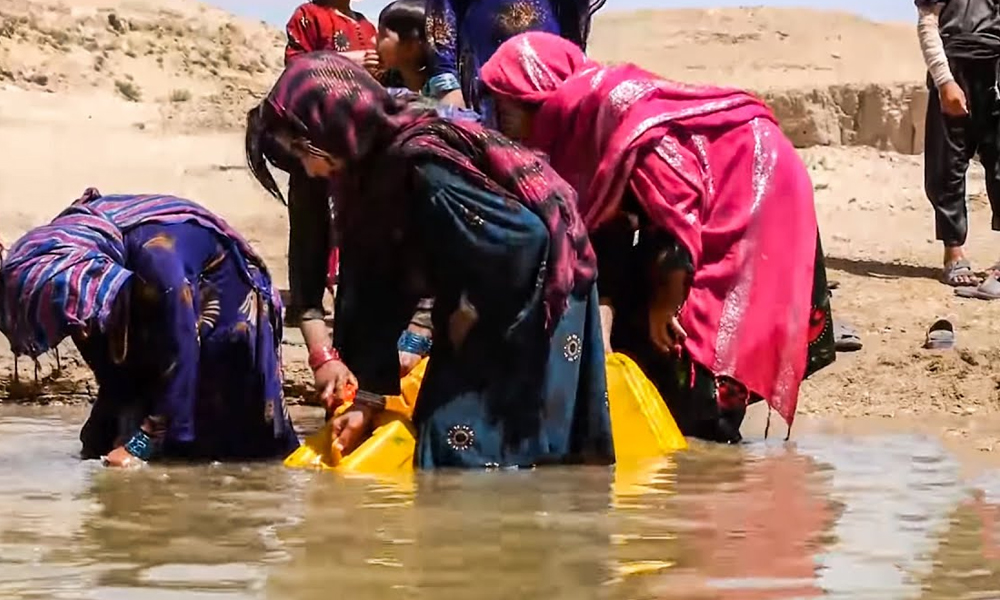
Afghanistan, India and Pakistan were among 11 countries singled out by U.S. intelligence agencies on Thursday as being “highly vulnerable” in terms of their ability to prepare for and respond to environmental and societal crises caused by climate change.
In a new National Intelligence Estimate, the Office of Director of National Intelligence (ODNI) predicts that global warming will increase geopolitical tensions and risks to U.S. national security in the period up to 2040.
Such estimates are broad U.S. intelligence community assessments. Thursday’s report identifies as particular “countries of concern” Afghanistan, India, Pakistan, Myanmar, Iraq, North Korea, Guatemala, Haiti, Honduras, Nicaragua and Colombia. ODNI posted a declassified version online.
Heat, drought, water availability and ineffective government make Afghanistan specifically worrying. Water disputes are also a key geopolitical flashpoint in India and the rest of South Asia, Reuters reported.
The report identifies two additional regions of concern to U.S. intelligence agencies. Climate change is “likely to increase the risk of instability in countries in Central Africa and small island states in the Pacific, which clustered together form two of the most vulnerable areas in the world.”
The report notes disparities around global approaches to tackling climate change, saying countries that rely on fossil fuel exports to support their economies “will continue to resist a quick transition to a zero-carbon world because they fear the economic, political, and geopolitical costs of doing so.”
The report also notes the likelihood of increasing strategic competition over the Arctic. It says that Arctic and non-Arctic states “almost certainly will increase their competitive activities as the region becomes more accessible because of warming temperatures and reduced ice.”
It predicts international competition in the Arctic “will be largely economic but the risk of miscalculation will increase modestly by 2040 as commercial and military activity grows and opportunities are more contested.”
Latest News
Azerbaijan releases 14 Afghan prisoners

Azerbaijan has released 14 Afghan nationals from its prisons, Afghan Ministry of Foreign Affairs said on Saturday.
The ministry said in a statement that the release happened following efforts by Afghanistan’s embassy in Baku.
The Ministry of Foreign Affairs expressed its appreciation to Azerbaijan and relevant authorities for their cooperation and humanitarian action. It also reaffirmed that the IEA will continue to follow up on and resolve the cases of Afghan prisoners.
Latest News
Khalilzad says U.S. ‘significantly satisfied’ with IEA’s fight against terrorism
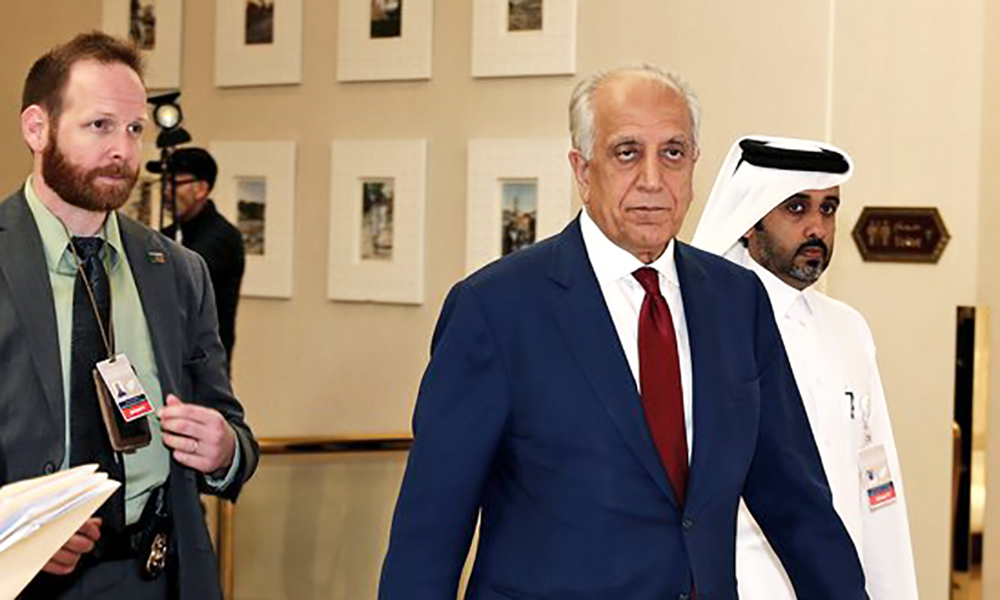
Former U.S. special envoy for Afghanistan, Zalmay Khalilzad, says Washington is largely satisfied with the Islamic Emirate of Afghanistan’s (IEA) efforts against terrorism, though progress in broader relations remains hindered by the issue of prisoners.
In an interview with NDTV, Khalilzad said the United States views the detention of at least two American citizens in Afghanistan as the primary obstacle to improving ties.
Khalilzad highlighted what he described as a “significant degree of satisfaction” in the U.S. assessment of the IEA’s counterterrorism commitments under the Doha Agreement. He said the IEA continue to fight Daesh, a group they have long considered an enemy. Many Daesh militants, he added, have been pushed out of Afghanistan and are now in Pakistan.
At the same time, Khalilzad said concerns remain regarding human rights and the political role of non-IEA Afghans.
Latest News
Afghanistan says Pakistan is shifting blame for its own security failures
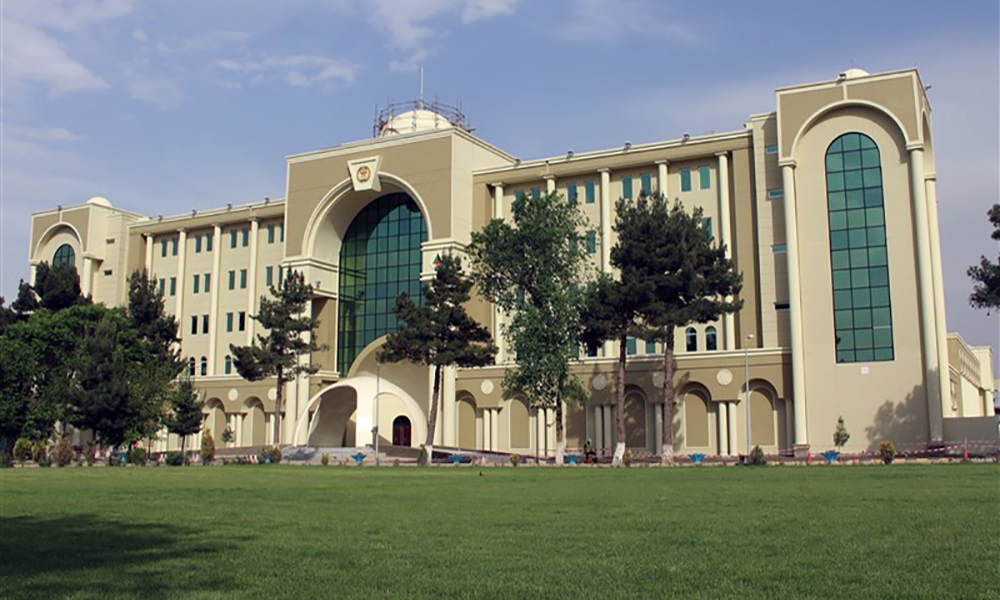
The Ministry of National Defense of the Islamic Emirate of Afghanistan has rejected recent accusations made by Pakistani officials following a deadly attack at a mosque in Islamabad, calling them “irresponsible” and “baseless.”
Pakistan’s Defense Minister Khawaja Mohammad Asif wrote on X that preliminary findings suggest the suicide bomber had been on the move to and from Afghanistan.
According to the Afghan Defense Ministry, Pakistan’s defense minister “immediately and irresponsibly” blamed Afghanistan for the attack without conducting proper investigations. Afghan authorities noted that this pattern has been repeated in the past, particularly regarding incidents in Balochistan and other security events inside Pakistan.
The ministry stated that linking such attacks to Afghanistan “has no logic or foundation,” adding that these statements cannot hide Pakistan’s internal security failures or help solve the underlying problems.
“If they were truly able to identify the perpetrators immediately after the incident, then why were they unable to prevent it beforehand?” the statement asked.
The Afghan government emphasized its commitment to Islamic values, stating it does not consider harm against innocent civilians permissible under any circumstances and does not support those involved in illegal acts.
The statement urged Pakistani security officials to take responsibility for their internal security shortcomings, review their policies, and adopt a more constructive and cooperative approach toward both their own citizens and neighboring countries.
-

 Sport4 days ago
Sport4 days agoJapan trumps Afghanistan 6-0 in AFC Futsal Asian Cup quarter-final
-

 Sport3 days ago
Sport3 days agoHosts and heavyweights advance as AFC Futsal Asian Cup reaches semifinals
-

 International Sports5 days ago
International Sports5 days agoPakistan to boycott T20 World Cup group match against India
-

 Sport5 days ago
Sport5 days agoAfghanistan crush Scotland in ICC T20 World Cup warm-up
-

 Latest News2 days ago
Latest News2 days agoTerrorist threat in Afghanistan must be taken seriously, China tells UNSC
-

 Latest News3 days ago
Latest News3 days agoUzbekistan, Pakistan advance Trans-Afghan railway project
-

 Business4 days ago
Business4 days agoAfghanistan seeks expanded ties with Russia in energy, mining and infrastructure
-

 Latest News5 days ago
Latest News5 days agoAfghanistan faces worsening water crisis as millions return home


